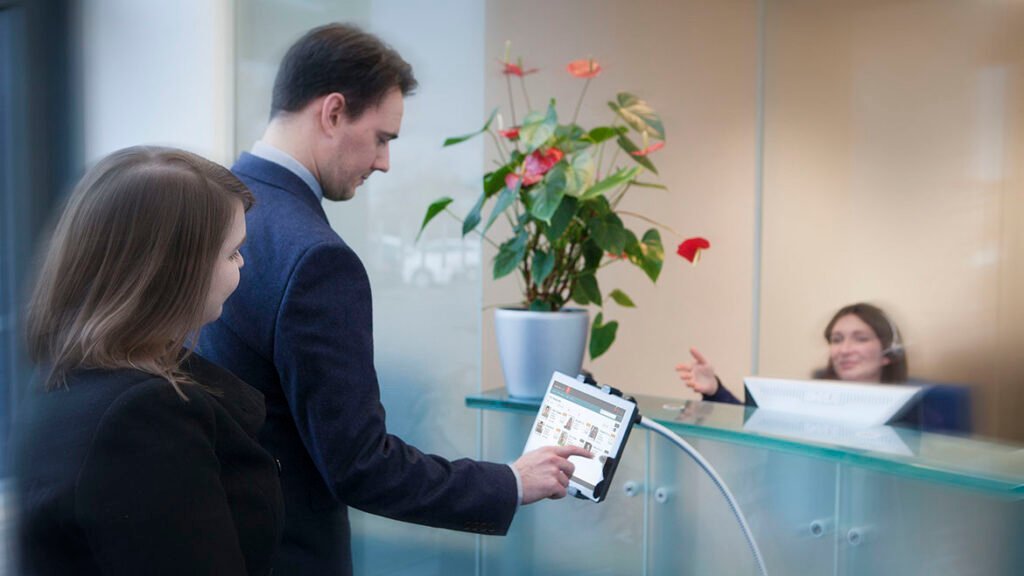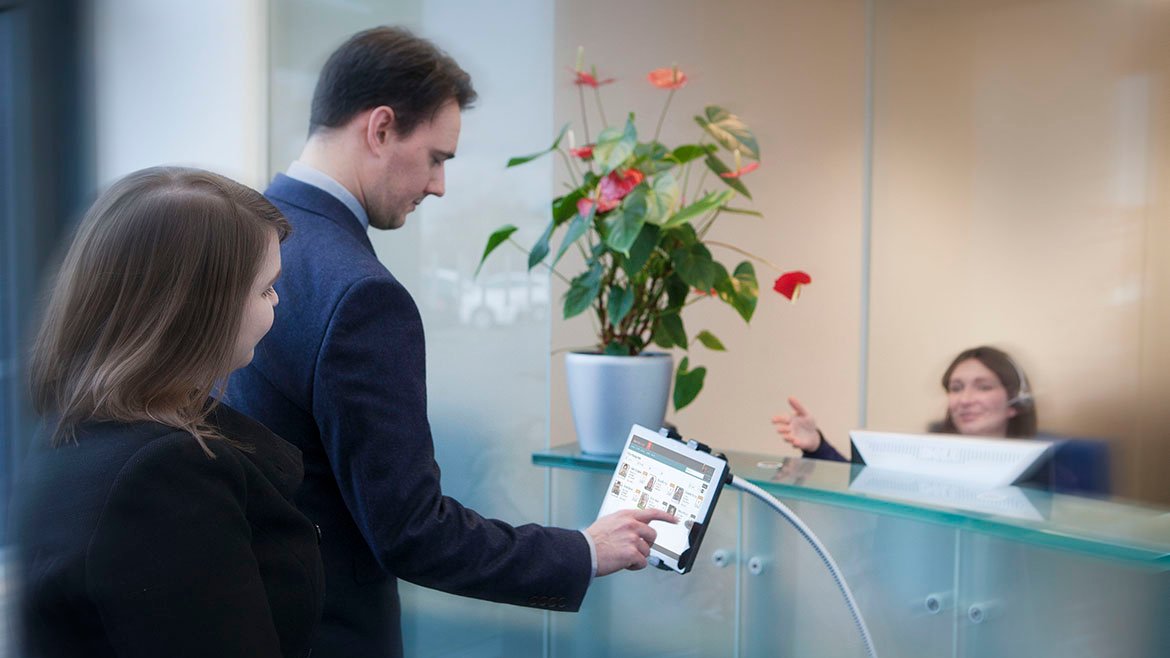Introduction
In today’s fast-paced business landscape, ensuring the safety and efficiency of visitor flow is more important than ever. Traditional visitor logs and sign-in sheets no longer meet the needs of modern organizations that deal with high foot traffic, data privacy concerns, and evolving compliance requirements. This is where a Visitor Management System (VMS) steps in — a digital solution designed to simplify and secure the process of tracking and managing visitors. From corporate offices to schools and hospitals, VMS technology is helping organizations build safer, smarter environments. This article explores what a visitor management system is, its core benefits, industry use cases, and why it’s becoming a must-have tool in today’s workplaces.
What is a Visitor Management System?
A Visitor Management System is a software-based platform that automates the process of registering, tracking, and managing visitors entering a facility. It replaces the outdated paper logbook with a digital system that captures visitor details such as name, purpose of visit, time in/out, and in some cases, even a photo ID or digital signature.
Modern VMS platforms can handle everything from pre-registration of guests to printing visitor badges and notifying employees when their guests arrive. Many also integrate with access control systems, temperature scanners, facial recognition, and contactless check-ins, making them ideal for both safety and convenience.
Key Benefits of Implementing a Visitor Management System
1. Improved Security and Access Control
A robust visitor management system offers strong security by ensuring that only authorized individuals gain access to specific areas. Features like ID verification, watchlist screening, and badge printing reduce the risk of unauthorized entry. With a complete digital log, security teams can review who entered, when, and for what purpose.
2. Streamlined Check-In Process
Gone are the days of long wait times at the reception desk. A VMS enables visitors to pre-register, fill out forms digitally, and receive QR codes for quick self-check-in. This reduces bottlenecks in high-traffic areas and creates a smoother, faster experience for both guests and staff.
3. Real-Time Notifications and Alerts
When a visitor checks in, an automatic notification can be sent to the host employee via email or SMS. This minimizes delays and helps teams stay prepared. In case of an emergency or security breach, instant alerts can be sent to relevant personnel, allowing for faster response and action.
4. Regulatory Compliance and Record Keeping
Organizations in industries such as finance, healthcare, and education must meet strict regulatory requirements regarding data privacy and visitor tracking. A VMS helps maintain accurate, time-stamped records that are easy to retrieve during audits or investigations. This also supports GDPR, HIPAA, and other compliance standards.
5. Emergency Preparedness and Evacuation
During fire drills or real emergencies, knowing exactly who is in the building is critical. A visitor management system can generate a live list of all checked-in individuals, which helps in accounting for everyone during evacuations. Some systems can also send mass notifications with instructions during critical events.
6. Better Visitor Experience
First impressions matter. A VMS offers a sleek, professional interface that gives visitors a sense of organization and care. With features like contactless check-ins, personalized greetings, and easy navigation, the visitor experience becomes more engaging and efficient.
Industries That Benefit from Visitor Management Systems
- Corporate Offices: To ensure professional check-ins, NDA signing, and meeting coordination.
- Healthcare Facilities: To screen visitors, control access, and meet patient safety standards.
- Educational Institutions: For controlling campus access and tracking all non-staff entries.
- Government Buildings: For high-security access and audit-ready visitor records.
- Manufacturing Plants: To ensure safety protocols and track vendor visits.
Features to Look for in a Modern Visitor Management System
If you’re considering implementing a VMS, here are essential features to look for:
- Pre-registration and calendar integration
- Photo capture and ID scanning
- Badge printing with QR/barcode
- Digital agreements (NDAs, health declarations)
- Host notifications (email, SMS, apps)
- Real-time visitor dashboards
- Integration with access control and security systems
- Cloud-based data storage and analytics
These features help maximize your ROI while improving workplace safety and user experience.
Read Also: VKontakte: Russia’s Leading Social Network Explained
Conclusion
A Visitor Management System is no longer a luxury—it’s a necessity in today’s digitally driven, security-conscious world. By replacing outdated manual processes with intelligent automation, a VMS helps organizations boost their operational efficiency, meet compliance standards, and create a safe environment for staff and guests alike.
Whether you’re managing a high-rise office, a university campus, or a hospital wing, the benefits of implementing a modern visitor management system are clear: enhanced security, seamless check-ins, real-time monitoring, and a polished visitor experience.
Investing in a VMS not only improves how you manage foot traffic but also signals to employees, clients, and partners that your organization values safety, professionalism, and innovation. In a competitive landscape where first impressions and compliance matter more than ever, a Visitor Management System is a smart, future-ready solution.
People Also Ask (FAQs)
Q1: What does a visitor management system do?
A visitor management system digitally tracks, registers, and manages all visitors entering a facility, improving security and streamlining the check-in process.
Q2: Why is visitor management important?
It ensures safety, supports compliance, keeps digital records, and enhances the visitor experience by replacing outdated paper logs.
Q3: Can a visitor management system be customized?
Yes, most systems allow customization to match branding, add NDAs, integrate with existing tools, and create specific visitor flows based on industry needs.
Q4: Is a VMS suitable for small businesses?
Absolutely. Many systems offer scalable pricing and features that work well for startups, co-working spaces, and small offices.
Q5: Does a visitor management system store visitor data securely?
Yes. Most VMS platforms offer cloud-based, encrypted data storage that complies with privacy regulations like GDPR and HIPAA.






